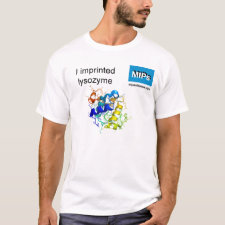
Authors: Gai QQ, Qu F
Article Title: Preparation and adsorption characteristics of surface-imprinted polymer using bovine serum albumin and lysozyme as double template proteins.
Publication date: 2015
Journal: Chinese Journal of Chromatography
Volume: 33
Issue: (5)
Page numbers: 475-480.
DOI: 10.3724/SP.J.1123.2015.01008
Alternative URL: http://www.chrom-china.com/EN/abstract/abstract13866.shtml
Abstract: The double template surface-imprinted polymer (Bi-MIP) was synthesized by atom transfer radical polymerization (ATRP) in aqueous media, using bovine serum albumin (BSA) and lysozyme (Lyz) as the template proteins, N-isopropylacrylamide (NIPAAm) and acrylamide (AAm) as the monomers and N-[3-(dimethylamino)propyl]-methacrylamide (DMAPMA) as the assistant of basic functional monomer. The ATRP possessed the mild reaction conditions and can be initiated at room temperature without heating and ultraviolet radiations. The preparation conditions of imprinted polymer were optimized, and the content of DMAPMA as the assistant of basic functional monomer was investigated. The results showed that Bi-MIP exhibited the good adsorption capacity and selectivity in single protein solution and in mixed protein solution when the volume of DMAPMA in the preparation process of Bi-MIP was 20 μL. The rebinding capacity of Bi-MIP was evaluated according to adsorption isotherm of the imprinted polymer. The Langmuir adsorption model was employed to describe the isotherms and revealed that Bi-MIP exhibited the maximum rebinding to BSA and Lyz at 10.2 mg/g and 19.2 mg/g, respectively. And Bi-MIP had good imprinting effect and adsorption capacity to templates BSA and Lyz from egg white and bovine serum samples. This will provide a new way for specific recognition of the double/multiple target proteins in the complex biological samples.
Template and target information: protein, double template, bovine serum albumin, BSA, lysozyme, lyz
Author keywords: surface molecularly imprinted polymer, double template proteins, Adsorption characteristics



Join the Society for Molecular Imprinting

New items RSS feed
Sign-up for e-mail updates:
Choose between receiving an occasional newsletter or more frequent e-mail alerts.
Click here to go to the sign-up page.
Is your name elemental or peptidic? Enter your name and find out by clicking either of the buttons below!
Other products you may like:
 MIPdatabase
MIPdatabase









